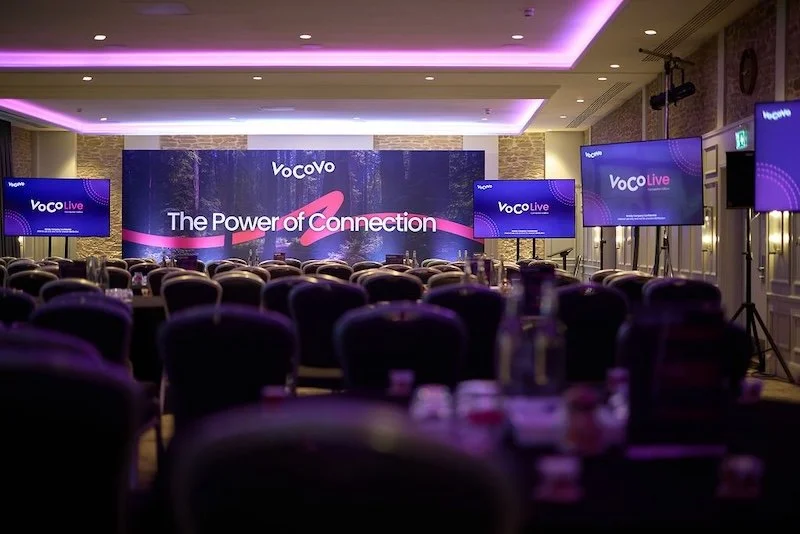Five retail technology questions for James Barlow, Vice President of Sales at PIM specialist Akeneo
RTIH asks major players in the retail technology space for their thoughts on the sector, and throws in a random question to keep them on their toes. This time around, our five questions go to James Barlow, Vice President of Sales at Akeneo.
RTIH: Looking at the hottest retail technologies right now, check-out free stores, rapid delivery services, the metaverse and NFTs, automation and robotics, which ones stand out to you, and for what reason?
JB: It’s impossible to avoid AI. It is important that we all get educated and at least try to develop a point of view, although that’s pretty hard given how the landscape is changing so fast and how many of the predictions for the technology are so apocalyptic.
Do I think it will bring about the end of the world? No, I don’t and I think it makes more sense to focus on the practical, for instance how engines like ChatGPT will improve search, product descriptions, translation and customer service.
The challenge already is how to formulate queries that will give helpful answers; it’s all too easy to think like the old world of search and that’s just a waste of good tech. Who knows, soon the AI might come back and say, “here’s how I would have asked the question, do you want to go ahead?”
The trick with new tech is working out when it might be useful and when it’s a gimmick. I don’t want to rain on anyone’s parade but not so long ago, beacons were going to be the future of in-store engagement, but where is that tech now.
At the same time, I don’t want to switch off the innovation which depends on a trail of bad investments in the hope a few go big.
RTIH: Which retail technology trend is overrated in your opinion?
JB: The emergence of voice activated search clearly hasn’t grown to the predicted levels discussed five to six years ago.
There are several problems, principally that the user has to do most of the work and can still end up with the wrong answer. And that’s assuming it activates in the first place. Or it activates when you least expect it because it has been set off by a random word it overhears.
That said, voice for typing is amazing these days and it is easy to forget that the tool has already been on the Microsoft Word desktop for a while now.
Some manual editing will still be required but the same saved can be huge, assuming you are the sort of person who is good and thinking as you go. Watch out for long sentences though as when we speak, we often don’t pause for punctuation.
I’m a bit worried about the metaverse as well. After all the hype we are now in a place where the tech seems to have retreated into the world of gaming and even the pioneers are saying there’s a long way to go.
That said, plenty of people are developing apps which means that as long as they are prepared to keep innovating, we are bound to get somewhere useful eventually.
This should not be confused with augmented reality apps in store though as there is clearly a place for these, even though it is wrong to talk about replacing human interaction. People count.
RTIH: What are the top five retail tech Twitter/LinkedIn accounts you can’t do without, and why?
JB: IMRG, Retail Gazette, Drapers, Retail Bulletin and probably most of the quality national newspapers. We get our news minute by minute these days so I like that I can follow a story as it unfolds, that adds to the drama.
Despite all the fuss over haters and trolls on social media, it has now gone mainstream, so we need to work with its limitations and make it work better for business.
Think back to when you had to wait maybe weeks for your story to go round the world, now you can do it instantly and have some control over where it goes.
And you get immediate feedback that you can roll into the next chapter, which may be how you write the next iteration of your software. This all means you can innovate instantly and on the fly. That’s got to be good for customer experience.
RTIH: If you could have a dinner party with any five retail pioneers, dead or alive, who would they be and why?
JB: Ben Francis the founder of Gymshark, Steve Jobs late of Apple, entrepreneur Mike Ashley, and Jeff Bezos of Amazon. Whatever you think of the personalities, it is endlessly fascinating to me how people become successful.
Sure, they work hard, we know that but there are other factors at play – being willing to take a chance that might go horribly wrong, moving on without getting distracted by failure, smelling BS from 50 feet and taking time to think about what might come next.
These guys don’t wait for the future to happen to them, they go out and create it.
RTIH: What is your biggest pet peeve?
JB: I get frustrated when I see companies invest millions each year on their e-commerce platforms, search and merchandising tools, and loyalty software but then not invest in the one asset that makes all of those things really perform. And that’s product information management.
The best way to turn browsers into buyers is to use softer that will enable retailers to deliver engaging, world class product experiences across all their owned and unowned channels.















Continue reading…